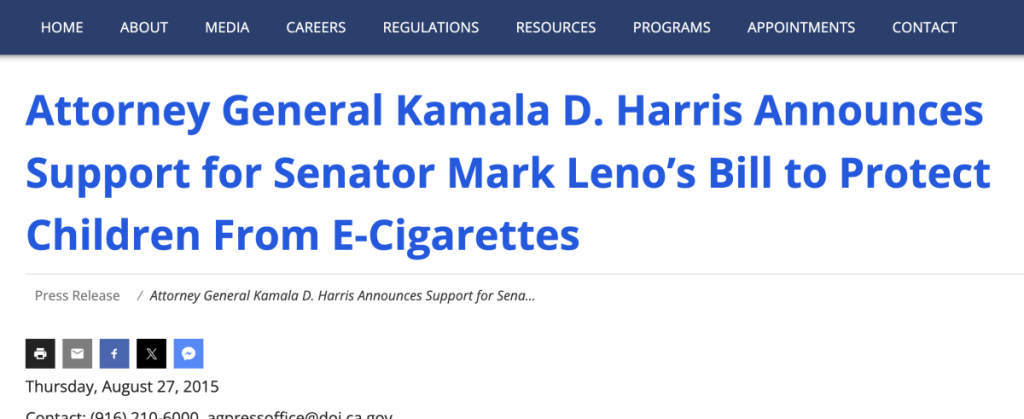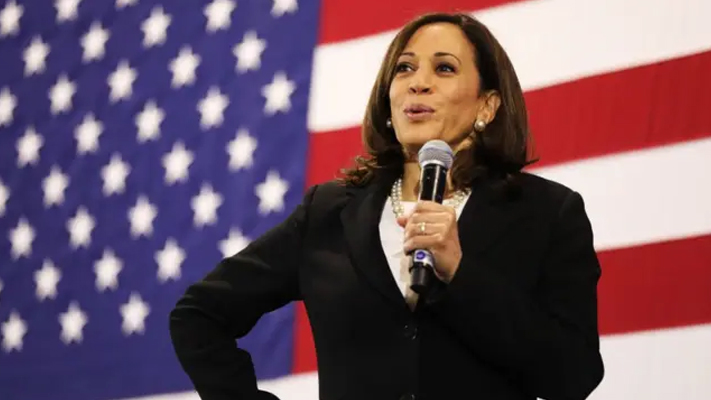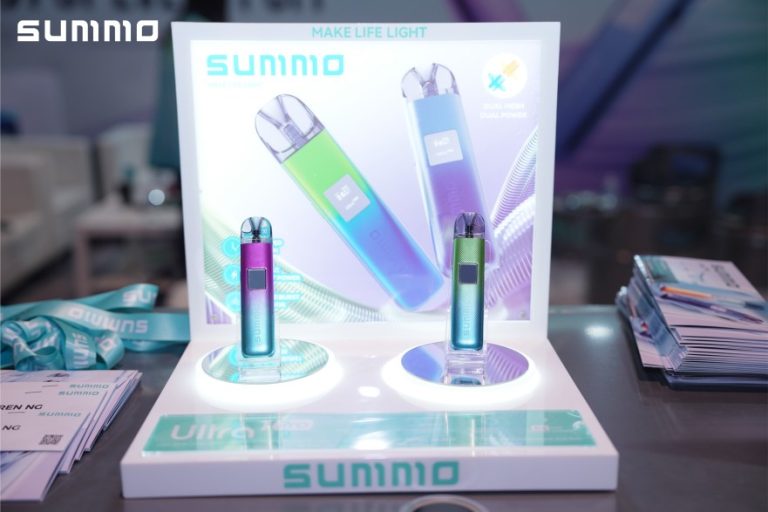On July 23, U.S. President Joe Biden announced his withdrawal from the 2024 presidential race and expressed his support for Vice President Kamala Harris to succeed him as the Democratic nominee. As early as her tenure as Attorney General of California, Harris actively promoted legislation to include e-cigarettes in laws prohibiting minors from smoking and regulating smoke-free environments.
Biden Supports Harris as Democratic Nominee
According to a Reuters report on July 22, U.S. President Joe Biden announced his withdrawal from the 2024 presidential race and expressed his support for Vice President Kamala Devi Harris as the Democratic nominee. Harris stated that she is honored to have Biden’s support, and her goal is to win the nomination and unite the party and the country to defeat former Republican President Trump. Subsequently, Democratic Party leaders from all 50 states have pledged their full support for Vice President Kamala Harris as the new presidential candidate.
Protecting Children from the Impact of E-Cigarettes
As Vice President, Harris’s connection to e-cigarettes began during her tenure as Attorney General of California when e-cigarettes had not yet gained national attention as they did in 2019. In August 2015, she actively promoted legislation to include e-cigarettes in laws prohibiting minors from smoking and regulating smoke-free environments.

She supported Senator Mark Leno’s SBX2 5 bill, aimed at protecting children and teenagers from the harmful effects of e-cigarettes. The bill explicitly defined e-cigarettes as “tobacco products” and required child-resistant packaging for e-cigarettes to ensure they were included in existing laws preventing minors from smoking and regulating smoke-free spaces.
“Protecting children from nicotine addiction is crucial for good public health and sound fiscal policy,” Harris said. “I thank Senator Leno for his leadership on this issue and urge the legislature to approve this important legislation.”
The bill banned smoking in workplaces, schools, daycare centers, restaurants, bars, hospitals, and public transportation. It also ensured that e-cigarettes were subject to the 1994 “Stop Tobacco Access to Kids Enforcement (STAKE) Act,” which successfully reduced the illegal sale of cigarettes to children. At the time, it was announced that tobacco use in California resulted in $13.29 billion in annual healthcare costs.
At the federal level, as Vice President, Harris pushed the Biden administration’s e-cigarette policy towards preventing and reducing youth e-cigarette use. She believes that protecting children from the dangers of nicotine addiction is a core task of public health policy.
Support for Relaxing Marijuana Regulations
In addition to the e-cigarette issue, Harris’s stance on marijuana has significantly changed during her tenure as Vice President.
Initially known for her strict opposition to marijuana as a prosecutor in California, she later became an advocate for marijuana legalization. Harris co-sponsored federal marijuana decriminalization legislation and supported measures to expunge non-violent marijuana-related offenses, aligning with the Democratic Party’s growing support for marijuana legalization and criminal justice reform.
In March this year, she publicly stated, “No one should go to jail for smoking marijuana,” adding:
“Too many people are in prison for marijuana possession.”
Harris called on the Department of Health and Human Services and the Department of Justice to expedite the reclassification of marijuana as a less harmful drug than heroin. Harris said, “It’s absurd to consider marijuana as dangerous as heroin, more dangerous than fentanyl, and this is clearly unfair.”
Last year, the Department of Health and Human Services recommended reclassifying marijuana from a Schedule I to a Schedule III drug, indicating moderate potential for addiction.
Political Issues in Contention
In a previous article titled “If Trump Returns to Power: What Changes Might E-Cigarette Regulations Face?” we explored Republican candidates’ views on e-cigarettes and marijuana. During his previous term, the Trump administration, after delaying legislation, relaxed restrictions on flavored e-cigarettes, emphasizing the need to protect small businesses and jobs in the e-cigarette industry, taking a balanced approach to public health and economic impact. At the legislative level, Republican senators like Rand Paul opposed overly strict e-cigarette regulations, arguing that such measures would harm small businesses and the free market.
Moreover, many Republicans, while opposing strict e-cigarette regulations as “nanny state” actions, also emphasize the importance of protecting minors from the dangers of e-cigarettes. For example, Georgia Senator David Perdue stated that although he dislikes excessive government intervention, protecting children’s health is necessary.
Biden’s nomination of Harris and her rise to prominence have rekindled enthusiasm for the Democratic Party’s election campaign in the short term, while Trump aims to attract voters dissatisfied with Biden’s policies.
According to BBC News, since Biden announced his withdrawal and Harris launched her campaign, Democratic donations have surged, with grassroots supporters raising $46.7 million. Many senior Democratic figures have also expressed their support for Harris.
Additionally, Reuters reported that Trump told CNN he believes Harris would be easier to defeat in the November election than Biden if she were nominated.






















+ There are no comments
Add yours